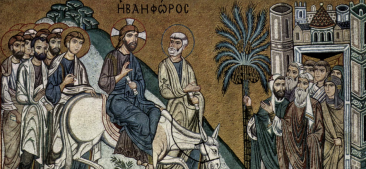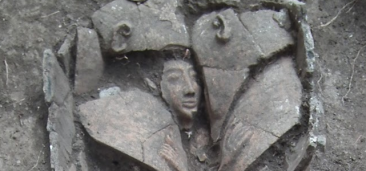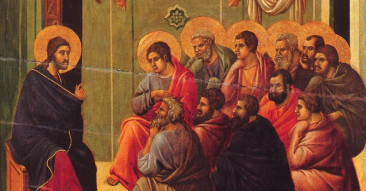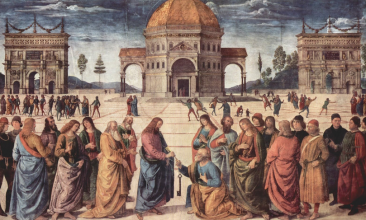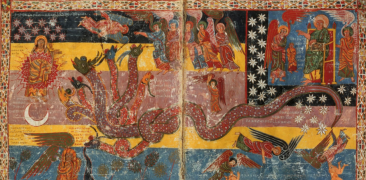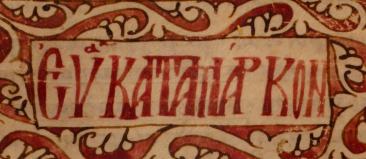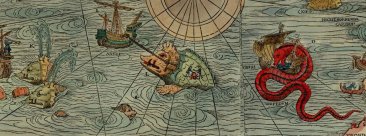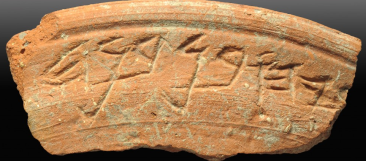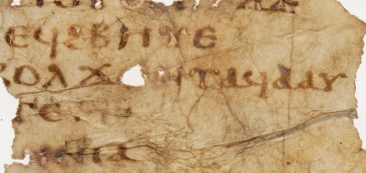One thing that I have appreciated since getting back from my trip to Israel is a deeper understanding of the locations and journeys in the scripture. This week I have been thinking both about Jesus’ last week in Jerusalem (celebrated next week by Christians as Holy Week) and also about his last journey from Galilee to Judea (which likely would have started a week or less earlier).
Category Archives: Biblical Studies
Tomb of a 13th Century BCE (possibly Egyptian) Canaanite Official Found in Jezreel Valley
From the Israeli Antiquities Authority:
“A 3,300 Year Old Coffin was Exposed Containing the Personal Belongings of a Wealthy Canaanite – Possibly an Official of the Egyptian Army
Among the items discovered – a gold signet ring bearing the name of the Egyptian pharaoh Seti I.
The Noah Movie and Its Sources
Christianity Today has a good interview with Darren Aronofsky which provides some background on the material in the new Noah movie. It seems that Aronofsky and Ari Handel researched a wealth of ancient, primarily Jewish, traditions and texts for material in the movie. These traditions/texts ranged from the Book of Enoch, the Jubilees material, the Genesis Apocryphon text from Qumran and other ancient collections such, Genesis Rabbah, the Talmud, etc. Some of these date from well before the time of Jesus and down to a period 500 years after the New Testament.
I’m not sure how much material from these texts will be used, but here’s just some of the Flood related content in three of them:
Born of the Spirit, Part 1
The tribe of Jesus people my family regularly share our lives with has been working through the Gospel of John on Thursday nights. The thing about this unique account of the life of Jesus is that no matter how many times I engage with it, it surprises me with things I’ve never noticed and with things I have. I mean, I taught this book three times a day for an entire semester three years in a row, and it is still fresh, challenging, and life-giving!
What stands out to me in this Gospel is the mystical theme of the Spirit-led and God-revealed life. Jesus is very clear in this Gospel that his actions are simply and humbly based on this: “I can’t do anything on my own. I do what I see the Father doing…and He shows it to me because He loves me” (John 5:19-20 paraphrased), and, even though it isn’t explicitly stated, this revelation seems directly connected to the idea of being led by the Spirit.
What Jesus Said About Church
It might surprise people to know that Jesus didn’t talk about church very much. While Jesus does spend a lot of time talking about what I would call “Kingdom oriented relationships and practices,” in all four Gospels, Jesus only mentions church (Greek ekklesia) explicitly in two passages, and both are in Matthew. Continue reading
NT Wright on Taking the Bible Literally
In this BioLogos produced video, Peter Enns interviews N.T. Wright on methods of understanding scripture.
NT Sources for the Birth/Incarnation of Christ
The Gospel of Matthew:
“Now the birth of Jesus Christ happened this way. While his mother Mary was engaged to Joseph, but before they came together, she was found to be pregnant through the Holy Spirit. Because Joseph, her husband to be, was a righteous man, and because he did not want to disgrace her, he intended to divorce her privately.
Schiffman on Purity As Separation
Lawrence Schiffman has posted a series of brief articles on perceptions and mis-perceptions of Jewish purity laws of Second Temple Judaism. If you want to gain better understanding of Gospel texts dealing with clean and unclean, these posts may give you some insight from a Jewish perspective.
- COMPARING THE DEAD SEA SCROLLS, RABBINIC LITERATURE, AND THE NEW TESTAMENT
- RITUAL PURITY AND IMPURITY AND THE ADMISSION PROCESS
- NEW TESTAMENT TEXTS
[UPDATE: I also see that Dr. Schiffman has another, earlier, four-part series, also dealing with ritual purity in Second Temple Judaism: Body and Soul, Purity and Impurity.]
Podcast on the Gospel of Mark
Craig Evan Anderson (Claremont Graduate University) and Matthew Ryan Hauge (Azusa Pacific University) have launched a podcast series about the Gospel of Mark. I’ve listened to the first episode and thought it was really good. Here’s a snippet of their thoughts:
This podcast episode addresses the diverse ways in which the canonical Gospels speak about the life of Jesus. Oftentimes, in popular Christian culture we blend the Gospels together, manufacturing a super-gospel that harmonizes the diversity of the four Gospels into a gospel that does not exist. Unfortunately, this popular harmonization functions as a subtle rejection of the Gospels as they are presented in the Bible and silences the unique beauty of the voice of each Gospel.
Go hear to listen and read their summary of episode 1. They have also produced a series on Kings.
Of Oar Fish, Sea Monsters, Dragons of Chaos, and the Bible
The recent find on October 13th of a dead, 18 foot oarfish off the California coast brought to mind all the books I read as a child about sea monsters. Seeing the pictures of the long, narrow body of the typically deep sea fish (which can actually grow up to over 50 feet), it is easy to understand why sailers of an earlier time would have thought, on the rare occasion one approached the surface, that it was a giant “sea serpent“. Coincidentally, the Smithsonian ran a fascinating article just a few days later promoting the release of two new books (here and here) dealing with maps and sea monsters.
George Athas on Discoveries of Ancient Inscriptions in Israel and the Bible
One of the scholarly dangers in our field is letting the excitement of an inscriptional find take us down avenues where we want to go, rather than having a more restrained approach. Part of the problem with this is, as many archaeologists and historians have found in recent years, the news media are prone to sensationalizing finds when they bear upon ‘biblical’ times without our coaxing. The result is the dissemination of misinformation. And news certainly travels quickly these days.
Read More At The ASOR Blog
(image courtesy of the Israeli Antiquities Authority)
Newly Discovered Coptic Fragment of the Gospel of John
On his blog Brice C. Jones has written about his discovery of an unpublished Sahidic Coptic fragment of John and his upcoming published presentation of the find in New Testament Studies next spring (April 2014). According to his post, this fragment is the earliest known all Coptic manuscript containing commentary on the Gospel text delineated by the heading “hermeneia” (“interpretation” or “explanation”). He does not mention the possible dating of the fragment, however. According to Jones, other Coptic manuscripts containing hermeneia segments are bilingual, with a mixture of Coptic and Greek.
Congrats on a great find!
